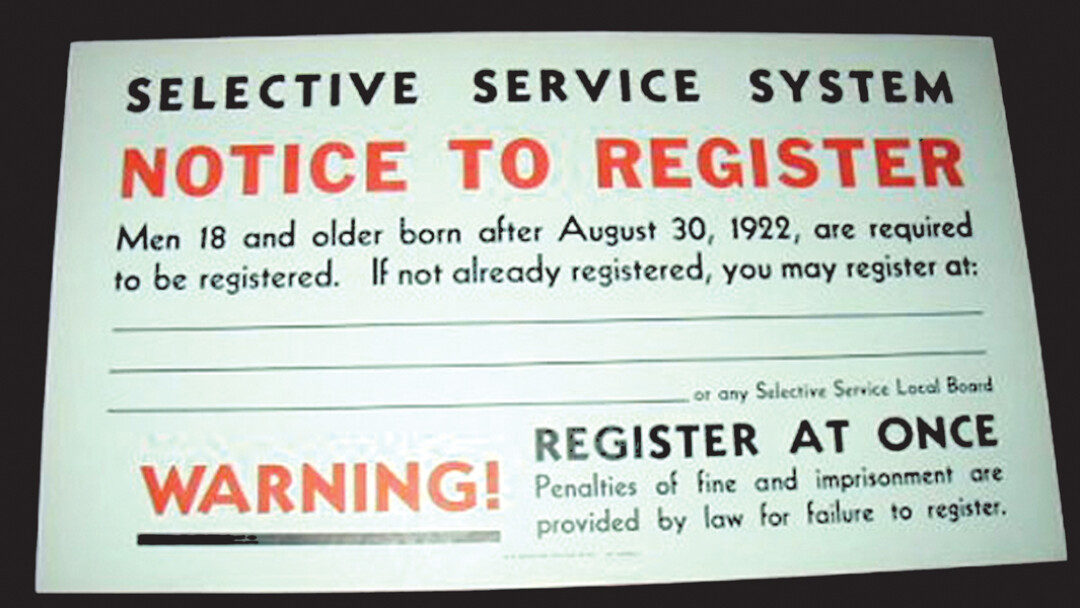Should Women be Required to Register for Selective Service?
Pat Hill | Tuesday Mar. 1st, 2016
In the wake of Defense Secretary Ash Carter’s decision in December to entirely open the U.S. military to women, two members of Congress have introduced legislation to require women to register for Selective Service.
In February, Rep. Duncan Hunter (R-Calif.), a Marine veteran, and Rep. Ryan Zinke (R-Mont.), a retired Navy SEAL, filed the Draft American’s Daughters (DAD) Act. If passed, women from 18-26 years old would for the first time have to join men in registering with the Selective Service program and potentially be forced to fight in future wars.
Men, who historically filled combat roles, are required to register with Selective Service when they turn 18 years old, in case a draft is again needed. The Supreme Court had in the past backed the exemption for women, but only because they were not expected to fill crucial combat ranks. The Marines and Army, along with the other service branches, were ordered by Defense Secretary Ash Carter to open about 225,000 combat jobs to women candidates. These combat jobs were the last remaining occupational specialties that had barred female troops.
Sen. Mike Lee (R-Utah) said in February that he would file a bill barring the White House or the courts from changing the law that exempts women. The Supreme Court ruled in 1981 that women did not have to register for the draft because combat jobs were closed to them, but that assertion was made essentially moot by the Defense Department’s decision to allow women in combat. And both Hunter and Zinke seem to be pretending to support something they don’t actually like in order to make a point. Both publicly oppose opening combat specializations to women “without regard for the research and perspective of the Marine Corps and special operations community.” Hunter even said that it’s unfortunate the DAD Act had to be introduced, and he might even vote against his own bill, but said it needed to be introduced to stir conversation regarding the issue.

“If this administration wants to send 18, 20-year-old women into combat, to serve and fight on the front lines, then the American people deserve to have this discussion through their elected representatives,” Hunter said in a released statement.
Both Hunter and Zinke claim that the decision to allow women into combat roles was made despite research and reservations from the Marine Corps and special operations community, and without adequate debate among lawmakers. The Marines completed a study last summer that found women get injured more often and perform below males in combat. During an oversight hearing in the Senate last month, lawmakers repeatedly referenced the study and said they are worried the military could lower standards to accommodate more women in combat occupational specialties.
But Marine Commandant Gen. Robert Neller and Army Chief of Staff Gen. Mark Milley testified to the Senate that they believe there no longer should be an exemption in the draft for half of the country’s population now that the military is all inclusive. Neller, who initially requested exemptions for women in some combat positions, said he thinks it is fair that women now face being called up to wartime service.
“Every American that is physically qualified should register for the draft,” said Neller, who had requested but was denied the exclusion of women in some Marine combat jobs.
“My daughter is a damn good Navy diver. I know women play an invaluable role in war. Many times women can gain access to strategic sites that men never could,” Zinke said in a released statement. “However, this administration’s plan to force all front-line combat and Special Forces to integrate women into their units is reckless and dangerous.” But Zinke also told KGVO Radio in Missoula that the issue is about equality.
“Selective service is part of that,” he said in a KGVO interview. “If you’re going to make everything equal, then we’ve got to make everything equal along those lines. I don’t think a draft is likely, [and] signing up for Selective Service isn’t the same thing as drafting, but this is, yet again, when you look at this through a political lens, you’ve got to have this discussion about all parts of serving the country. It’s not pushing affirmative action in women’s roles, it should be looking at us as a team, what roles and missions are the right way to go?”
It remains to be seen if the DAD Act will become law, but the issue has become a topic in this year’s presidential race. Presidential hopeful Sen. Ted Cruz (R-Texas) vehemently opposes the idea that women should register for Selective Service, and has made that point known on the campaign trail, saying that the idea to draft women into the military is “nuts.”
“Listen, we have had enough with political correctness, especially in the military,” Cruz told voters at a town hall meeting in February. “Political correctness is dangerous. And the idea that we would draft our daughters to forcibly bring them into the military and put them in close combat, I think is wrong. It is immoral and if I’m president we ain’t doing it.”
Let us know what you think by leaving a comment after this article.
| Tweet |
